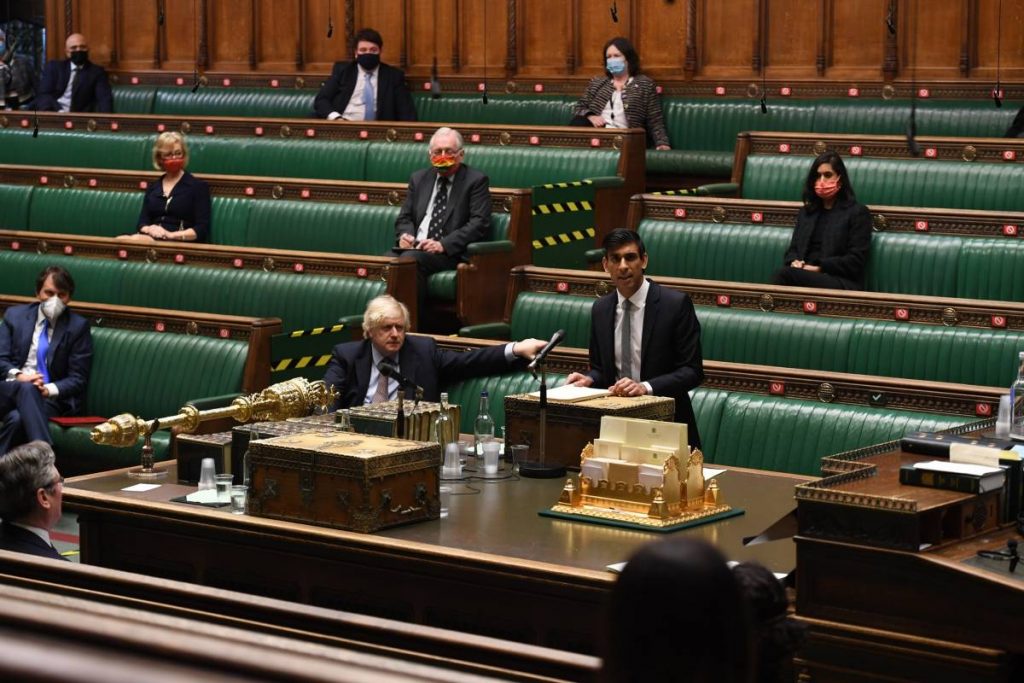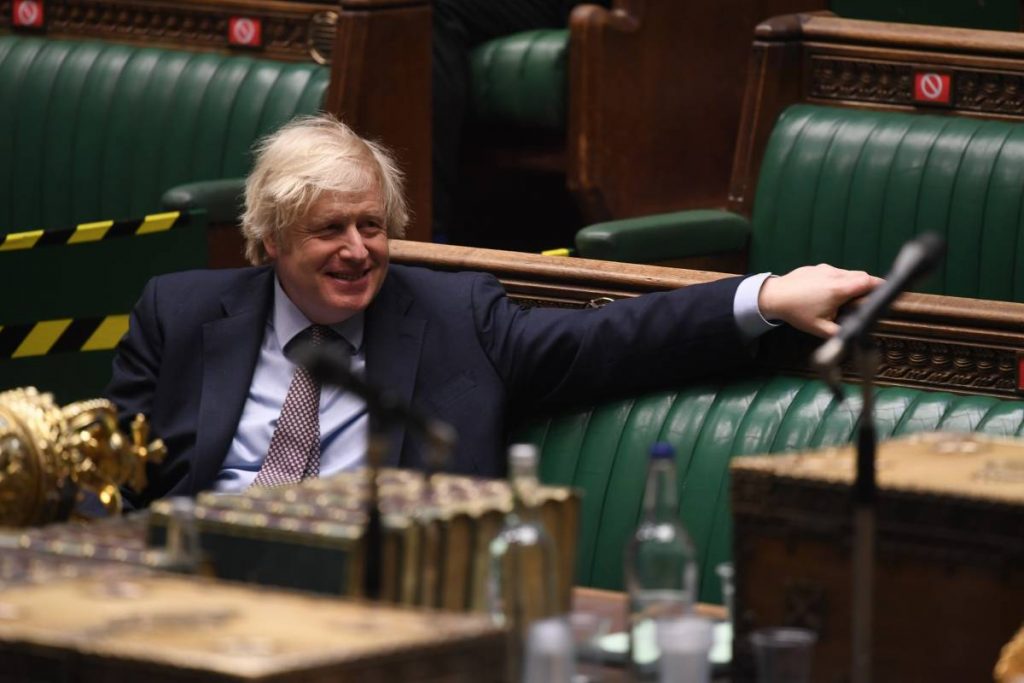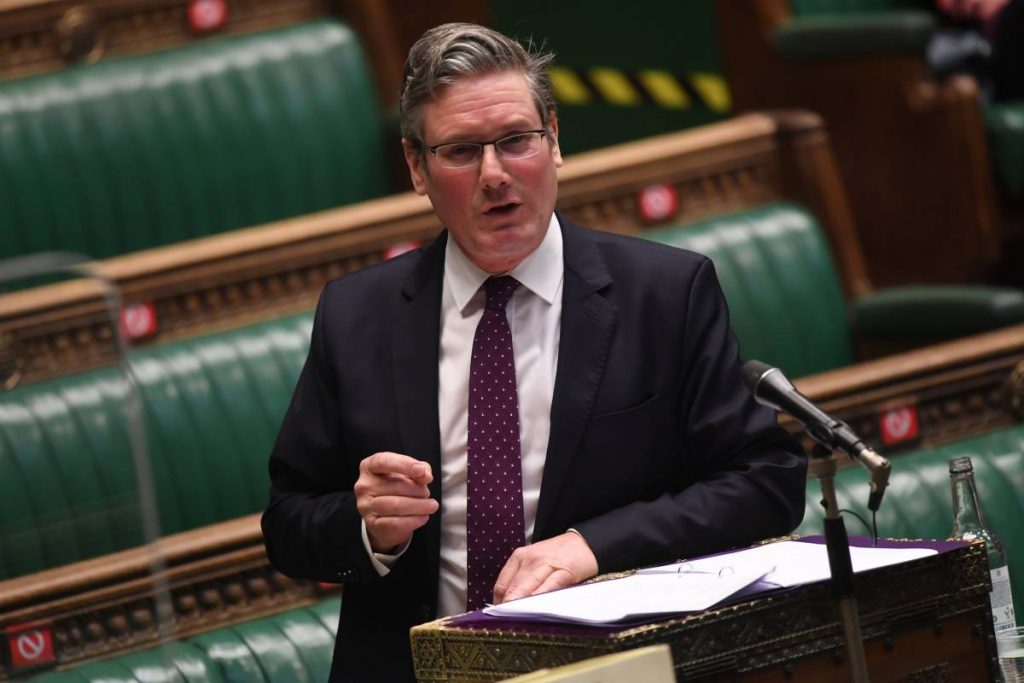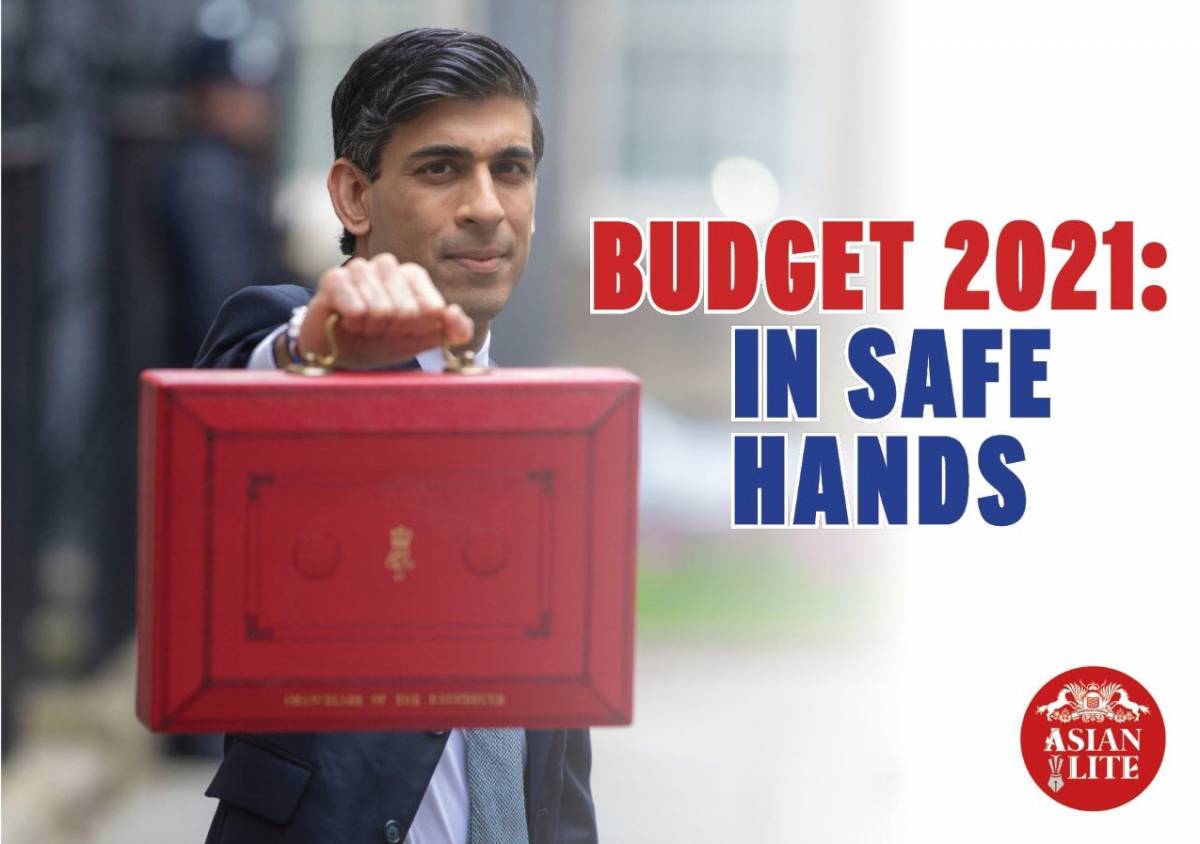Sunak unveils a £65 billion package of coronavirus support to save jobs, but warns that there would be billions of pounds of tax rises to pay for it, reports Asian Lite News
Chancellor of the Exchequer Rishi Sunak extended emergency programmes to guide Britain’s economy through the pandemic-induced crisis in his Budget. However, his plan to plug the hole in public finances was routed through a tax squeeze on businesses and individuals.
Exuding confidence in his announcements on Wednesday, Sunak said the economy will regain its pre-pandemic size in mid-2022, six months earlier than previously forecast, helped by Europe’s fastest vaccination programme.

“The OBR now expect the economy to return to its pre-Covid level by the middle of next year — six months earlier than previously thought. That means growth is faster, unemployment lower, wages higher, investment higher, household incomes higher,” Sunak said delivering the annual budget speech.
But it will remain 3% smaller in five years’ time than it would have been without the health shock and extra support is needed now as the country remains under Coronavirus restrictions, he said.
“First, we will continue doing whatever it takes to support the British people and businesses through this moment of crisis,” Sunak told the Parliament.

“Second, once we are on the way to recovery, we will need to begin fixing the public finances – and I want to be honest today about our plans to do that. And, third, in today’s Budget we begin the work of building our future economy.”
To help those who are struggling due to the pandemic, Sunak extended the furlough scheme for another five months to September at a cost of £10 billion. The package of support also included grants for the self-employed, a six-month extension of the £20-a-week rise in universal credit, an extension of business rates relief and VAT cuts.
In one of his biggest revenue raisers, Sunak announced that corporation tax on profits would rise from 19 per cent to 25 per cent by 2023. Small businesses will be exempt.
He also announced a series of stealth taxes, including freezing the threshold at which people start paying the basic and higher rates of income tax at £12,570 and £50,270 respectively, a move that will raise up to £6 billion.

He said that since March last year more than 700,000 people had lost their jobs while the economy had shrunk by 10 per cent — the largest fall in more than 300 years. He added that government borrowing was now at the highest it has been outside wartime.
To offset the long-term tax hit on businesses Sunak also unveiled what he described as the “biggest business tax cut in modern British history” to encourage renewed investment to kick-start the economy.
The chancellor said that the total cost of the government’s coronavirus support package since the start of the pandemic was more than £350 billion.
Sunak also announced the location of eight new freeports, which he said would benefit from simpler planning rules, tax breaks and significant infrastructure spending.
These will be around the ports of Felixstowe, Harwich and Plymouth as well as Humber, the Liverpool City Region, Solent, Thames and Teesside. East Midlands Airport will also have freeport status.

Leave a Reply